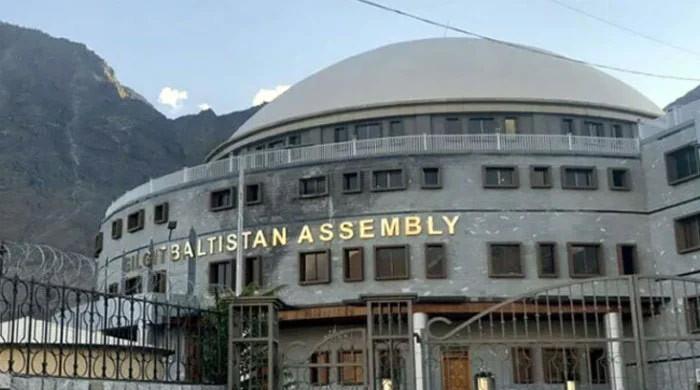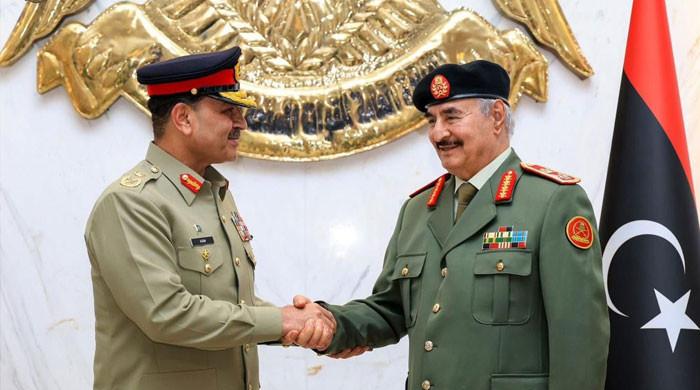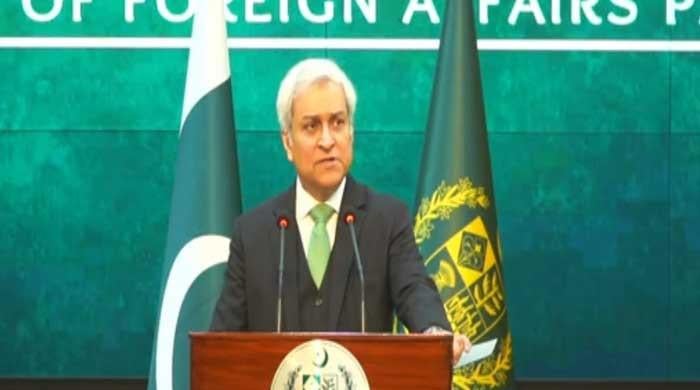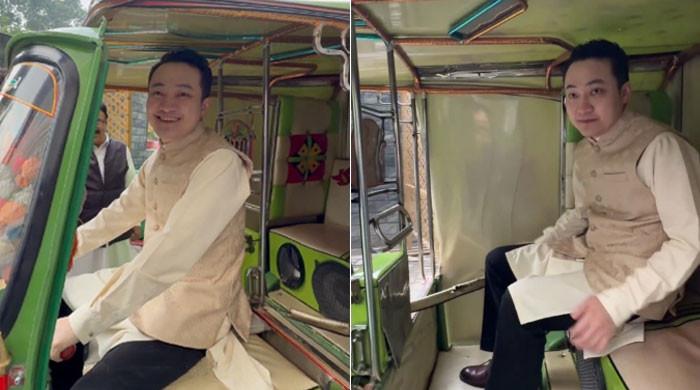'People will have to trust it': President Alvi ratifies EVM bill passed by Parliament
Bill will make way for holding the next general election through EVMs; will grant voting rights to overseas Pakistanis
December 02, 2021
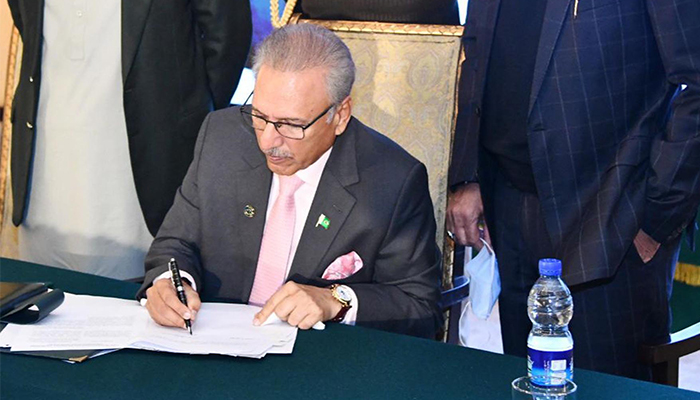
- Bill provides for holding of next general election through EVMs as well as granting right of vote to overseas Pakistanis.
- “People will have to trust it. It involves no advancement. It is too simple," President Alvi says of the EVMs.
- Says after its success in upcoming elections, the EVM would be marketed as the “product of Pakistan.”
ISLAMABAD: President Dr Arif Alvi Thursday signed the Election (Amendment) Bill, 2021, which had earlier been passed by the Parliament and asked opposing voices not to be afraid of “simple” electronic voting machines (EVMs) which he hoped would help in holding a fair election and bringing an end to rigging.
“People will have to trust it. It involves no advancement. It is too simple. The country achieves progress by adopting new things,” the president said while addressing a ceremony.
Passed by the Parliament, the bill provides for holding of the next general election through the EVM as well as granting the right of vote to the overseas Pakistanis through i-voting.
He said the EVM would ensure holding a fair election which had long been desired in Pakistan as every election followed controversies and rigging charges which also impacted the credibility of the respective governments.
He said that after its success in the upcoming elections, EVM would be marketed as the “product of Pakistan.”
Calling it a “great step”, the president said the legislation was made possible owing to the consistency of Prime Minister Imran Khan and hard work by the cabinet members despite huge resistance.
He said that it would help print the vote at the spot instead of printing the ballot paper at the press.
The president went on to say that the machine would help to do away practice of printing extra ballot papers which used to be sold out later, the kidnapping of presiding officers, and confusion in the counting process.
He said while using EVMs that voters would cast their vote by touching the screen instead of stamping the ballot paper.
“The process is the same. Then what is the resistance for?” he questioned.
He explained that for an accurate result, votes would be counted through an in-built calculator, though manual counting would also be available for sceptics.
He clarified that the Ministry of Science and Technology was not a manufacturer of the EVMs rather it just made a prototype for the experiment. It would be the Election Commission of Pakistan to select EVMs based on the required specifications.
Coming to i-voting for overseas Pakistanis, the president recounted his as well as PTI’s legal and political struggle to grant voting rights to expatriates.
Rubbishing the notion of hacking, the president quoted the 2018 data of digital transactions worth $5 trillion a day which he said involved far lesser chances of hacking than a plane crash.
Terming the innovations as key to development, President Alvi said following the world’s footsteps was no service to the country.
He said due to multiple complications, physical voting for expatriates was not possible.
The president said some countries had rejected the EVMs because they had their own better systems in place. Contrarily, Pakistan needed it owing to its system’s weakness.
He said the EVM would help to alleviate the confusion caused by the post-election rigging charges and bring about a strong government to support democracy.
“Don’t worry, the nation will be convinced. Just like this one, the country will make progress in other fields too,” the president remarked.
Earlier, Minister for Science and Technology Senator Shibli Faraz said the legislation was a historic achievement as, in the past, the controversies on the fairness of elections begot political and economic instability besides confrontation in the parliament.
He said following the 90-day deadline by the prime minister, the ministry got the prototype of EVM manufactured through NUST and experimented with it at multiple forums like universities, chambers, and before media.
He said it was now up to the ECP to choose the EVM based on the requirements, though the Commission had already formed three committees on the subject that would follow the floating of international tender.
He said the legislation on EVM was a bold decision and no resistance could deter the prime minister’s confidence as the PTI had resolved to establish a system for holding the polls by utilizing the technology.
Earlier, Advisor to PM on Parliamentary Affairs Dr Babar Awan said the previous government’s claims of holding free and fair elections were confined to the slogans.
He said the government was also trying to incorporate the use of EVM in the laws of local government elections in Islamabad as well as Punjab, adding that the machines were "meant to minimise human involvement in elections that would also do away with the possibility of double stamping and rejection of votes."
Asking the opposition not to be afraid of the EVM, he said the resistance against the EVM on the pretext of technology was irrational as over 186 million people were already using mobile phones as well as social media in Pakistan.




